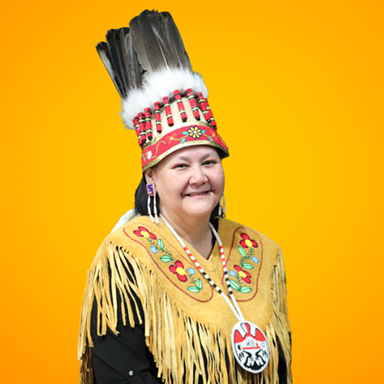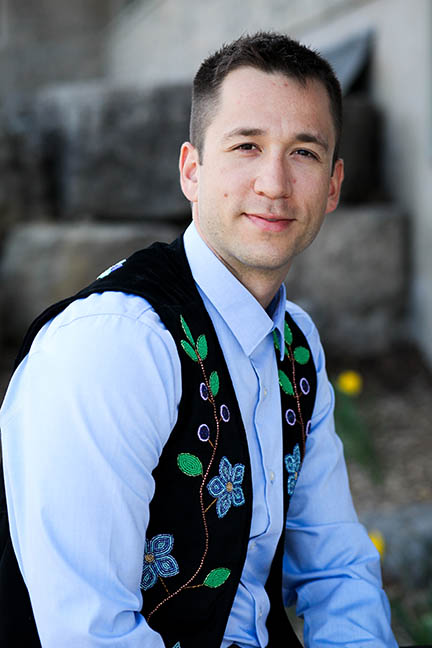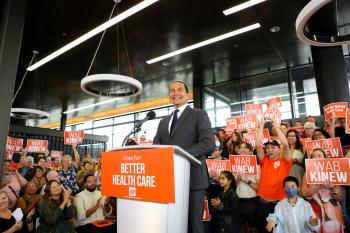Image Caption
Summary
Local Journalism Initiative Reporter
Windspeaker.com
In a provincial election campaign that has largely neglected Indigenous issues, Real Carrière says it’s one Indigenous issue that has dominated debates and ads that could decide the fate of the ruling Manitoba Progressive Conservatives on Oct. 3.
And if the Conservatives lose, New Democratic Party leader Wab Kinew from the Onigaming First Nation in northwestern Ontario, would become the first First Nations person to hold the position of Manitoba premier. John Norquay (Métis) was the first Indigenous person in the position, serving as province's fifth premier from 1878 to 1887.
“Within every election cycle, I think there's certain issues that compel Indigenous peoples to turn out to vote,” said Carrière, a University of Manitoba assistant professor in political science.
“So, this is kind of one of the reasons why I've been questioning the strategy of the Conservative Party to focus on the landfill and continue to bring that issue up when it's not their strong point. It's not their sort of central core Conservative political value,” he said.
This past weekend, Conservative Premier Heather Stefanson doubled down on her decision not to search the Prairie Green Landfill north of Winnipeg for the remains of two Long Plain First Nation’s women, Marcedes Myran and Morgan Harris.
Stefanson’s decision in July came under heavy criticism by both local and national First Nations leaders. This past Saturday, the Progressive Conservatives ran a full-page advertisement in a local daily newspaper saying in a graphic that included Stefanson’s face, that her party would “stand firm…For health and safety reasons, the answer on the landfill dig just has to be no,” it read.
“I personally don't think this is the human approach to continue to talk about this. Is it connected to racism, not searching the landfill? I'm not sure about that, why they're doing it in this case,” said Carrière, who is Cree-Métis from northern Saskatchewan.
In a 2015 Maclean’s article, Winnipeg was singled out as the community “where Canada’s racism problem is at its worst.”
A Winnipeg Free Press-CTV poll conducted by Probe Research found that 72 per cent of NDP supporters wanted the landfill to be searched while 18 per cent of Progressive Conservatives were in favour.
Kinew has promised an NDP government will search the landfill.

Assembly of Manitoba Chiefs (AMC) Grand Chief Cathy Merrick says it’s time that First Nations’ issues come off the backbench and that includes the landfill search.
The AMC has worked with Elections Manitoba to make it easier for First Nations people to vote. A new Declaration of First Nation Guarantor for Proof of Identity signed by a member’s chief, councillor or band membership clerk will allow that member to vote on their reserve.
There have also been more polling stations, both advanced and day-of, opened on reserves. AMC also hosted a Rock the Vote event and a town hall debate with party representatives.
“We are encouraging our people to go out to vote. That's part of our Rock the Vote initiative, to be able to give an opportunity for our people to be able to go out and participate in the process,” said Merrick.

There are two schools of thought for First Nations people when it comes to voting in federal and provincial elections, says Carrière. There are those who worry that if they vote they could damage Indigenous nationhood. And there are those who want to have a say in the outcome of provincial and federal elections.
“Even though there is, I think, concerns about what is it voting means for Indigenous sovereignty, I personally feel if you have the opportunity to vote, you should get out there and send that message because that's an important process,” he said. “I don't think that undermines who you are as an Indigenous person.”
“Voting in provincial elections allows First Nations to influence policies impacting education, impacting the healthcare system, housing, resource management, resource sharing and shaping their daily life. The growing provincial involvement in the day to day lives of First Nations signals a potential shift of federal fiduciary responsibility to the provincial level,” said Merrick.
With six registered parties in the election, there are at least 18 Indigenous candidates. According to an APTN article, the Conservatives and Liberals have four Indigenous candidates each, while the NDP has 10.
While Carrière says he’s unclear if Indigenous votes in ridings can swing the outcome, he believes a high Indigenous voter turnout combined with a mediocre response from the non-Indigenous population could make a difference.
According to 2021 Statistics Canada data, Indigenous people comprise 14 per cent of Winnipeg’s population and 18.1 per cent of the overall Manitoba population.
Of Manitoba’s 57 electoral divisions, 32 are in and around Winnipeg.
The AMC is not endorsing any party, says Merrick.
“We just want a government that will work with our people. We want to be at the table when decisions are made on behalf of our people in the province of Manitoba,” she said.
Merrick says that’s especially important as the federal government passes more and more of their responsibilities for First Nations on to provincial governments.
Whether Indigenous issues will get more attention under the NDP, Carrière says that hasn’t been seen in Kinew’s campaigning. He points to Kinew’s focus on health care. He also points to the political system.
“The role is kind of limiting because (the Indigenous elected official) is a representative in Canadian politics, and so they have to represent all the people in their specific riding and their specific province. So being Indigenous doesn't automatically mean that the Indigenous issues are going to be the first thing that the party does,” said Carrière.
As for whether the province’s Indigenous people should vote for the NDP because it’s led by a First Nation’s man, Carrière stresses that Indigenous people are diverse and they will follow their own priorities in choosing who they will vote for.
However, both Merrick and Carrière are excited about the possibilities of having Kinew as the premier.
“It’s a really good example of leadership and that's something that can be looked at historically,” said Merrick.
Carrière views Kinew’s potential victory through a “role model angle.”
“Seeing an Indigenous person achieve at the highest level is very inspirational for me. I've always drawn inspiration from seeing other Indigenous people achieve,” he said.
A mid-September Angus Reid poll had the NDP enjoying a six-percentage-point advantage over the Conservatives across the province.
Merrick says First Nations will work with whoever is in power, whether it’s a new NDP government or a returned Progressive Conservative government.
“We need to be part of the table, and we need to be part of that discussion. We need to be there and say what needs to be said because we have to protect our rights. We have to protect our treaty rights and our inherent rights, so we cannot rely on the government to do this for us,” she said.
Going into the Oct. 3 Manitoba general election, the Progressive Conservatives held 35 seats, the NDP 18, the Liberals 3 and one seat was vacant.
Local Journalism Initiative Reporters are supported by a financial contribution made by the Government of Canada.

